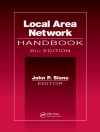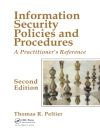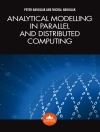Microgrid technology is an emerging area, and it has numerous advantages over the conventional power grid. A microgrid is defined as Distributed Energy Resources (DER) and interconnected loads with clearly defined electrical boundaries that act as a single controllable entity concerning the grid. Microgrid technology enables the connection and disconnection of the system from the grid. That is, the microgrid can operate both in grid-connected and islanded modes of operation. Microgrid technologies are an important part of the evolving landscape of energy and power systems.
Many aspects of microgrids are discussed in this volume, including, in the early chapters of the book, the various types of energy storage systems, power and energy management for microgrids, power electronics interface for AC & DC microgrids, battery management systems for microgrid applications, power system analysis for microgrids, and many others.
The middle section of the book presents the power quality problems in microgrid systems and its mitigations, gives an overview of various power quality problems and its solutions, describes the PSO algorithm based UPQC controller for power quality enhancement, describes the power quality enhancement and grid support through a solar energy conversion system, presents the fuzzy logic-based power quality assessments, and covers various power quality indices.
The final chapters in the book present the recent advancements in the microgrids, applications of Internet of Things (Io T) for microgrids, the application of artificial intelligent techniques, modeling of green energy smart meter for microgrids, communication networks for microgrids, and other aspects of microgrid technologies.
Valuable as a learning tool for beginners in this area as well as a daily reference for engineers and scientists working in the area of microgrids, this is a must-have for any library.
Giới thiệu về tác giả
Sharmeela Chenniappan, Ph D, is an associate professor in the Department of EEE, CEG campus, Anna University, Chennai, India. She has 20 years of teaching experience at both the undergraduate and postgraduate levels and has done a number of research projects and consultancy work in renewable energy, power quality and design of power quality compensators for various industries. She is currently working on future books for the Wiley-Scrivener imprint.
Sivaraman Palanisamy has an M.E. in power systems engineering from Anna University, Chennai and is an assistant engineering manager at a leading engineering firm in India He has more than six years of experience in the field of power system studies and related areas and is an expert in many power systems simulation software programs. He is also currently working on other projects to be published under the Wiley-Scrivener imprint.
Sanjeevikumar Padmanaban, Ph D, is a faculty member with the Department of Energy Technology, Aalborg University, Esbjerg, Denmark. He is a fellow in multiple professional societies and associations and is an editor and contributor for multiple science and technical journals in this field. Like his co-editors, he is also currently working on other projects for Wiley-Scrivener.
Jens Bo Holm-Nielsen currently works at the Department of Energy Technology, Aalborg University and is Head of the Esbjerg Energy Section. Through his research, he helped establish the Center for Bioenergy and Green Engineering in 2009 and serves as the head of the research group. He has vast experience in the field of bio-refineries and biogas production and has served as the technical advisory for many industries in this field.












